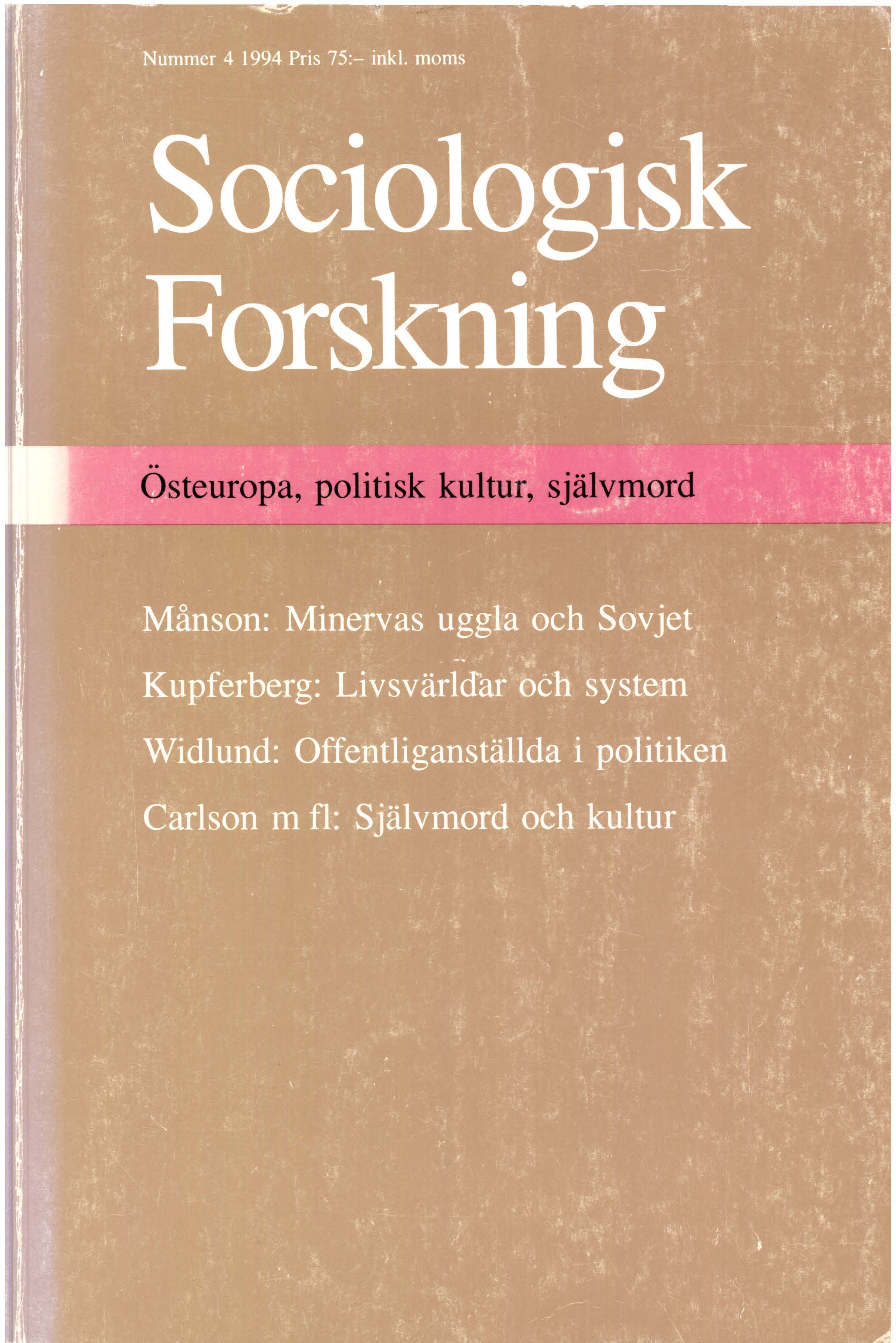Minervas uggla och Sovjetunionens fall
DOI:
https://doi.org/10.37062/sf.31.18621Abstract
The Owl of Minerva and the fall of the USSR
Michail Gorbachev’s resignation from the position as president of the USSR in the end of 1991 meant that nearly 75 year of Soviet power in Russia and other countries was over. During these years, the academic knowledge of the Soviet system, its orgins and future, that developed in the West, was namned “ sovietology”. This article takes its point of departure in Hegel’s famous dictum “The Owl of Minerva begins its flight when the shades of twilight have already fallen”, and asks: “Has the dissolution of the USSR changed anythingin our knowledge of the Soviet epoch?”.
The article first presents and discusses how sovietologists and others looked upon the future of the Soviet system, including its potential fall. Then follows a presentation of sovietology’s background in the cold war. In the third part the main directions in Sovietology— totalitarianism and revisionism— are presented. After this follows an overviewof the post soviet debate of the reasons for the dissolution of the USSR, after which the opening question : ”If the dissolution has changed our understanding of the USSR?” is answered with “very little, it seems”.
However, in the last part of the article, some new areas of research are proposed, for example the study of every day life in Soviet Union and the historical and cultural influence on the formation, development and fall of the Soviet system. Finally, it is emphasized that the study of the Soviet epoch now, at last, can be de-ideologinized.
Downloads
Published
How to Cite
Issue
Section
License
All content in Sociologisk Forskning is published with immediate open access, under the Creative Commons license CC BY-NC-ND 4.0.
All content may be read, downloaded, shared and printed for non-commercial purposes, free and without fees. Contents may not be altered. When content is reused, author, source and a link to the copyright licence must be provided. The author retains copyright to their content. No publication fees are charged.





